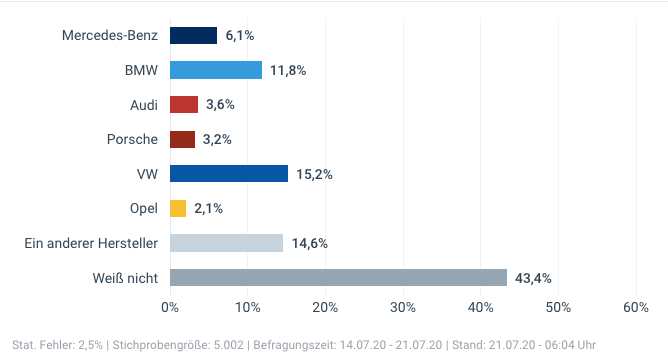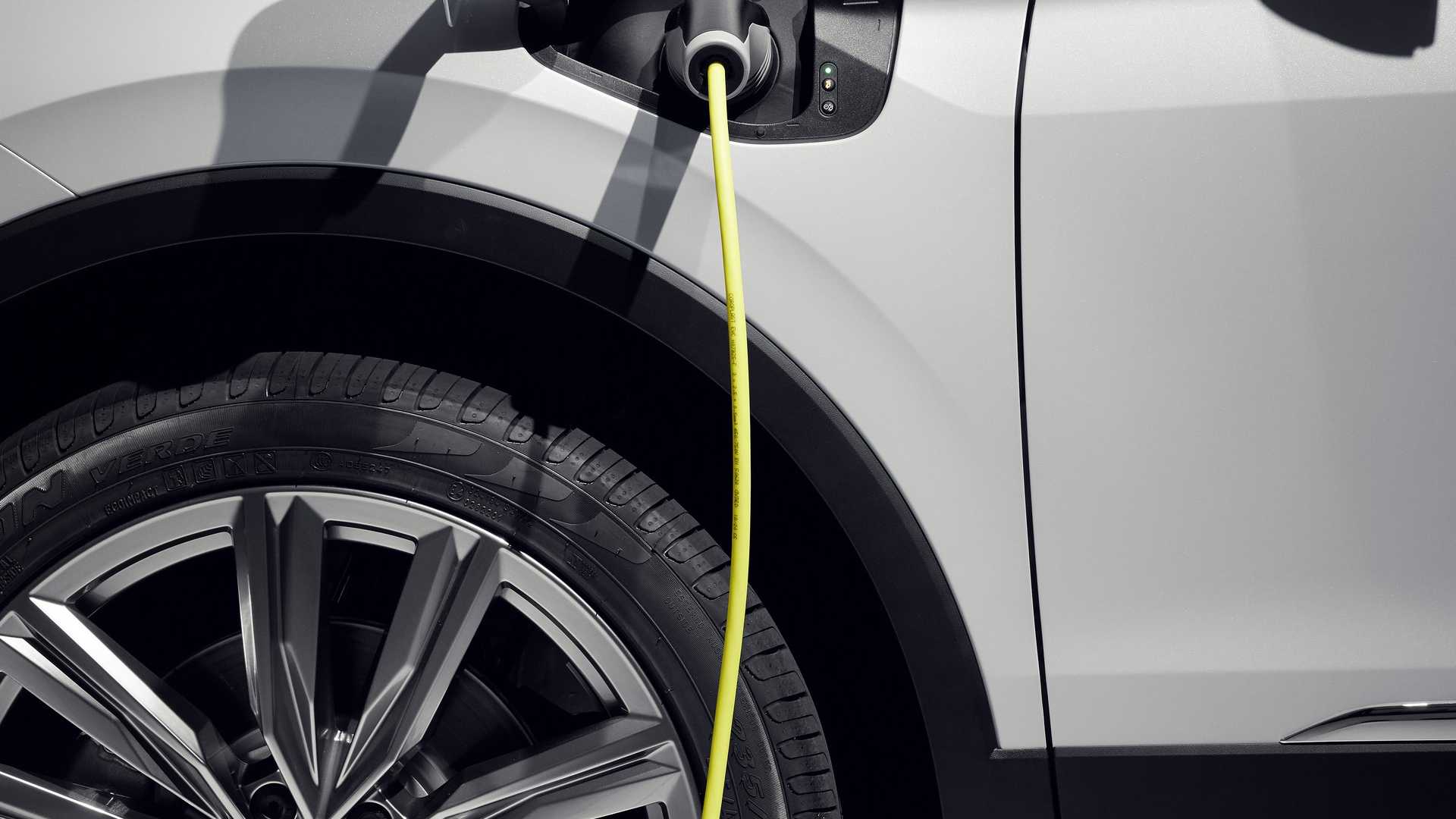In recent times we see how the large automobile groups in Germany begin to take firm steps in their commitment to the electric car. But despite this, the Germans themselves are not very optimistic about this addition. They do not give their brands many possibilities for the future to lead this new era of the automobile.
According to a survey carried out by the Berlin Civey consultancy for the Automobilwoche portal, which has had a sample of between 5,000 personal interviews, no less than 43% of those interviewed have not mentioned any German brand a candidate to lead the new generation of electric cars.
Only 15.2% named the first manufacturer, Volkswagen, ranking just ahead of BMW, with just 11.8% of the votes among the best positioned to face this new era. Much more worrying is the results for groups such as Daimler, which brings together brands such as Mercedes or Smart, and only received 6.1% approval.
There is also not very good news for some of the brands of the Volkswagen group, such as Audi, which has barely been mentioned by 3.6% of the participants, followed by Porsche with 3.2%, being the last Opel with only 2.1%.
Of course, we can say that just 5,000 people is not too many opinions and that those selected may not have much knowledge in the sector. But this survey should serve German brands to get a glimpse of the risk they’ve run by abandoning their investments in the electric car for too many years, letting many of their top talents escape both the United States and China.

A more typical example is members of the BMW project initiative, which after launching the ‘i’ family in 2013, received no further funds to continue expanding the Bavarian manufacturer’s electric car program. A team with Carsten Breitfeld at the helm launched into the Chinese adventure with the promising brand, now in trouble, Byton.
It is also striking that Volkswagen manages to be in the first position. Something that responds to the substantial investment that the Stuttgart group is making will allow it to launch the first mass-produced electric car in Germany, the ID.3. It will start its deliveries this summer.
But despite the more than 33,000 million that they plan to invest in the next four years, the participants in this survey place the German manufacturer in a reasonably modest position. They are the first classified in this list.
Something that could mean that consumers in Germany are starting to leave behind their traditional protectionism and preference for local products against foreign ones when it comes to electric cars. An aspect that would undoubtedly be confirmed would be terrible news for the mighty German groups that are seeing this year as one of the top five ranked sales of electricity in Germany, two are foreigners: one is the Renault ZOE, second place, and another American, the Tesla Model 3, which has been placed in the third position.
Some data that may not be definitive, but should be taken into account mainly by those groups that still have unfinished duties, with projects two or three years away, non-dedicated platforms, or with the issue of supplying batteries pending a fix.

